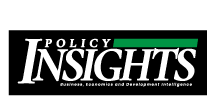Issue 20
January 2024
In 2023, many global economies including Bangladesh had to endure formidable macroeconomic challenges, marked by soaring inflation, dwindling foreign exchange reserves, exchange rate fluctuations and imbalances in the balance of payments. These issues were precipitated by external shocks such as the COVID-19 pandemic and the Russia-Ukraine war, as well as domestic policies including fixed interest rates and exchange rates. Amid these adversities, there were, however, notable positive developments, including the successful completion of major infrastructure projects such as the Padma Bridge, Bangabandhu Tunnel and Dhaka Metro Rail, which promised economic dynamism.
The cover article offers an insightful overview of Bangladesh’s economic landscape in 2023, highlighting the urgent need for significant post-election economic reforms. These reforms are crucial for regaining macroeconomic stability and guiding the economy towards sustainable high growth, despite various global and domestic challenges. The article also notes that, despite changes in the global landscape, globalisation continues, evolving to meet the demands of 21st-century world trade in goods and services.
Unlocking Bangladesh’s latent economic potential, as article 2 in this issue of Policy Insights contends, hinges on strategically harnessing the world market through active participation in international trade. Structural issues such as export concentration, stagnant remittances and a growing reliance on volatile financial account inflows further compound the challenges. Notably, low tax revenue emerges as a significant hurdle, with Bangladesh boasting one of the lowest tax-to-GDP ratios globally, despite a rise in per capita income. Addressing this requires comprehensive administrative and policy reforms to enhance revenue generation. The article further delves into the causes of these challenges, pinpointing the issues plaguing the banking sector. The financial sector, particularly banking, is identified as weak, plagued by high non-performing loans, low profitability and a slowdown in deposit growth. Urgent reforms, including a thorough overhaul of the banking and broader financial sector, are deemed critical.
To restore macroeconomic stability and propel Bangladesh towards rapid, inclusive growth, a comprehensive reform agenda is essential. This should encompass exchange rate flexibility, a more stringent monetary policy, fiscal reforms aimed at boosting revenue, promotion of exports and expansion of social security protection. Article 3 highlights post-election priorities crucial for steering Bangladesh toward its development ambitions.
Despite high economic growth, raising tax revenues is crucial. Article 4, backed by modelling results from the Policy Research Institute, illuminates the growth dividends achievable through judicious personal income tax reforms in Bangladesh. It advocates for a progressive approach to personal income taxes as a strategic driver for development, emphasising the need for concurrent systemic reforms in administration and policy to safeguard vulnerable groups.
Lastly, the advent of digital financial services (DFS) holds immense potential to transform Bangladesh’s agriculture. Article 5 stresses the need for targeted efforts to address challenges such as limited farmer adoption, inadequate tailored DFS for agriculture and the lack of digital literacy among farmers. Based on a study surveying 400 farmers’ use of DFS like mobile banking, the article provides evidence that most farmers already utilise financial services and have access to mobile networks.


